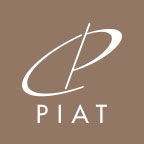 Menu
Menu
1. This policy confirms PIAT’s commitment to respect human rights, avoid contributing to the finance of conflict and comply with all relevant UN sanctions, resolutions and laws.
a) respect human rights according to the Universal Declaration of Human Rights and International Labour Organization Declaration on Fundamental Principles and Rights at Work
b) do not engage in or tolerate bribery, corruption, money laundering or finance of terrorism
c) support transparency of government payments and rights-compatible security forces in the extractive industries
d) do not provide direct or indirect support to illegal armed groups
e) refuse and strongly condemn any form of corruption or attempted corruption and facilitation payments in any form we undertake to support employees who may face any attempt at corruption
f) enable stakeholders to voice concerns about possible workplace abuse, corruption, or supply chain issues in the jewellery sector. To this end, we have set up and made available to the parties concerned a complaint handling mechanism, which can be obtained on request at the following address: emmanuel@piat.com
g) Put in place the OECD’s five-step framework for exercising a risk-based due diligence on the supply chain of minerals from conflict or high-risk areas
We also commit to using our influence to prevent abuses by others.
h) adopt ecologically responsible attitude and practices in order to control our impact on the environment
3. Regarding serious abuses associated with the extraction, transport or trade of minerals: We will neither tolerate nor profit from, contribute to, assist or facilitate the commission of:
a) torture, cruel, inhuman and degrading treatment;
b) forced or compulsory labour;
c) the worst forms of child labour;
d) human rights violations and abuses;
e) war crimes, violations of international humanitarian law, crimes against humanity or genocide.
We will immediately stop engaging with upstream suppliers if we find a reasonable risk that they are committing abuses described in paragraph 4 or are sourcing from, or linked to, any party committing these abuses.
4. Regarding direct or indirect support to non-state armed groups:
We will not tolerate direct or indirect support to non-state armed groups, including, but not limited to, procuring colored gemstones from, making payments to, or otherwise helping or equipping non-state armed groups or their affiliates who illegally:
a) control mine sites, transportation routes, points where precious stones are traded and upstream actors in the supply chain;
b) tax or extort money at mine sites, along transportation routes or at points where gemstones are traded, or from intermediaries, export companies or international traders.
We will immediately stop engaging with upstream suppliers if we find a reasonable risk that they are sourcing from, or are linked to, any party providing direct or indirect support to non-state armed groups as described in paragraph 6.
5. Regarding public or private security forces:
We affirm that the role of public or private security forces is to provide security to workers, facilities, equipment and property in accordance with the rule of law, including law that guarantees human rights. We will not provide direct or indirect support to public or private security forces that commit abuses or act illegally as described above.
6. Regarding bribery and fraudulent misrepresentation of the origin of minerals:
We will not offer, promise, give or demand bribes, and will resist the solicitation of bribes, to conceal or disguise the origin of minerals, or to misrepresent taxes, fees and royalties paid to governments for the purposes of extraction, trade, handling, transport and export of minerals.
7. Regarding money laundering:
We will support and contribute to efforts to eliminate money laundering where we identify a reasonable risk resulting from, or connected to, the extraction, trade, handling, transport or export of minerals.
A review is carried out annually to ensure that the due diligence is continuously monitored, and to be able to correct any deviations. This annual review includes human rights risks and the sourcing policy.
Piat Thailand’s code of practice
Piat France office’s code of practice